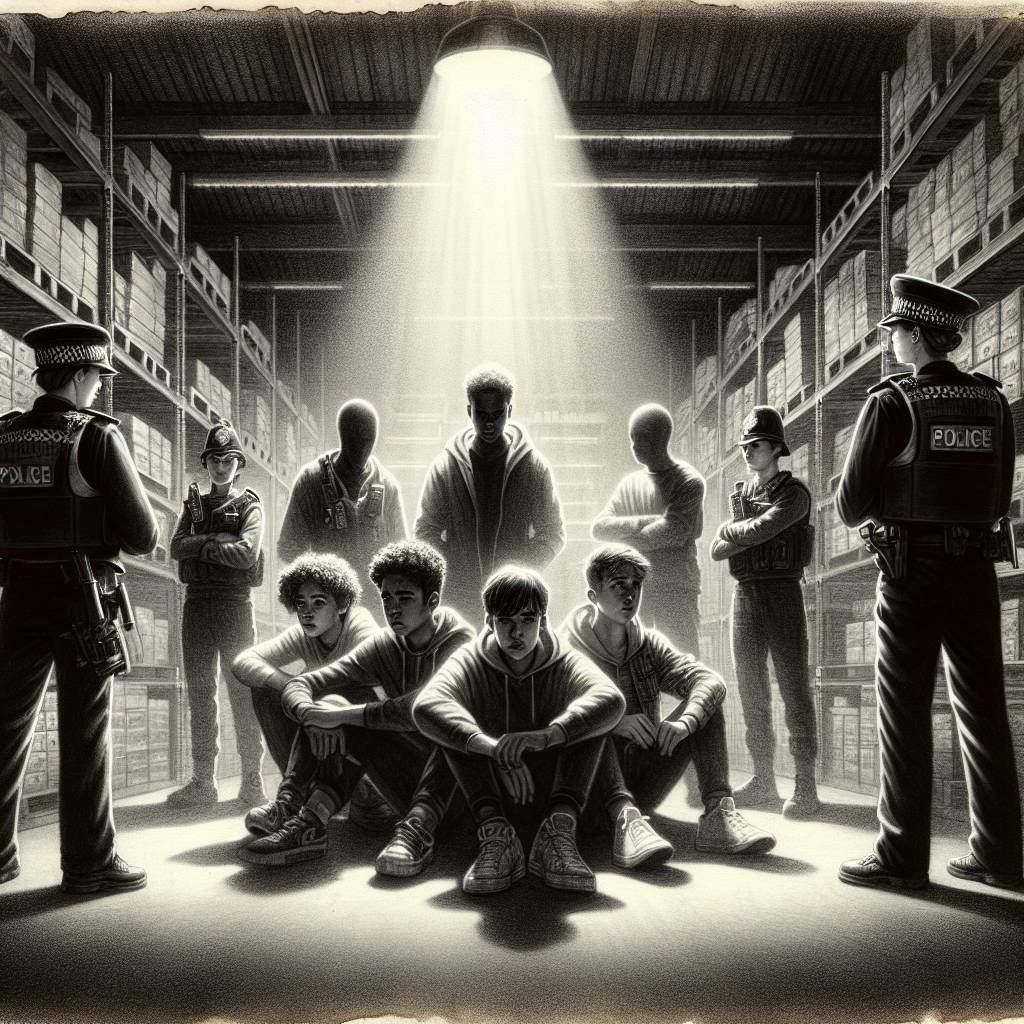Teen Tech Trouble: UK Cops Nab Young Cyber Crooks in Major Retailer Hacks
The UK’s National Crime Agency has arrested four young people suspected of cyberattacks on major retailers like Marks & Spencer, Co-op, and Harrods. These cyber criminals face serious charges, including blackmail and money laundering. It seems their online shopping spree has ended, but not quite in the way they’d planned.

Hot Take:
Looks like the UK’s National Crime Agency is channeling its inner Sherlock Holmes, nabbing a quartet of young digital mischief-makers who thought they were the Moriarty of cybercrime. Arresting two teenagers, a 20-year-old, and a 17-year-old is like catching the cast of a hacker-themed “Stranger Things” episode. But fear not, dear Brits, the NCA is on the case, and it’s elementary—my dear Watson—that these cyber capers won’t go unpunished!
Key Points:
- Four individuals, including three under 20, were arrested for suspected cyberattacks on major UK retailers.
- The cyberattacks targeted Marks & Spencer, Co-op, and Harrods, causing major disruptions.
- Marks & Spencer’s cyberattack led to a significant financial hit estimated at £300 million.
- Cyber gang Scattered Spider is suspected of being behind the attacks, known for past breaches on big names.
- The arrests may prompt remaining members to hide, but it’s unlikely to stop future attacks entirely.
Teenage Mutant Ninja Hackers
Move over, TMNT; here come the UK’s own Teenage Mutant Ninja Hackers! The National Crime Agency has caught a bunch of tech-savvy youngsters who thought they could play cyber Robin Hood by attacking high-profile UK retailers. The suspects, including two 19-year-olds, a 17-year-old, and a 20-year-old, were rounded up from their homes like a surprise LAN party gone wrong. Even though one of them is Latvian, the rest are English, proving that cybercrime knows no borders, just like their gaming consoles.
Retail Therapy Gone Rogue
While some people hit the shops for retail therapy, these young hackers hit the retailers for cyber mayhem. Their alleged cyber shenanigans threw Marks & Spencer, Co-op, and Harrods into chaos between late April and early May. And much like a poorly planned shopping spree, the consequences were costly. Marks & Spencer had to halt online orders and reset customer passwords after data was pinched, resulting in an estimated £300 million dent in their profits. Talk about a price tag shocker!
Ransomware: The Digital Boogeyman
The cyber crooks tried to unleash DragonForce ransomware, which sounds more like a deleted scene from “Game of Thrones” than a cyber threat. They managed to spook Marks & Spencer, but Co-op played the digital hero by shutting down its systems before the ransomware could wreak havoc. However, the culprits’ fingerprints are all over these attacks, and they’re linked to a notorious group called Scattered Spider, known for causing online chaos akin to a digital Godzilla rampage.
The Web of the Scattered Spider
Scattered Spider, a shadowy collective of English-speaking cyber bandits, has more breaches to its name than a sieve has holes. These digital miscreants have been a thorn in the side of companies like MGM, Twilio, and even Reddit. While the NCA didn’t explicitly point fingers at this arachnid-themed gang, the suspects’ ages, tactics, and love for social engineering match the Scattered Spider profile. These arrests might leave the remaining spiders scuttling back into the dark web shadows, but don’t count on them giving up the ghost just yet.
Cybercrime: The Never-Ending Saga
With these arrests, the NCA is hoping to put a dent in Scattered Spider’s web of cybercrime, but as any good horror movie fan knows, there’s always a sequel. While some of the crew may go into hiding, the likelihood of the entire operation shutting down is about as high as your chances of finding a unicorn in your backyard. These threat actors are part of a broader collective lurking on Discord and Telegram, where they plot their next big cyber escapade. But fear not, as long as the NCA has anything to say about it, these digital delinquents will have to face the music—or at least the law.
